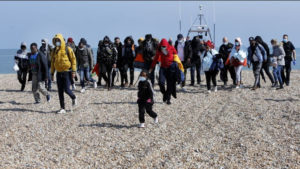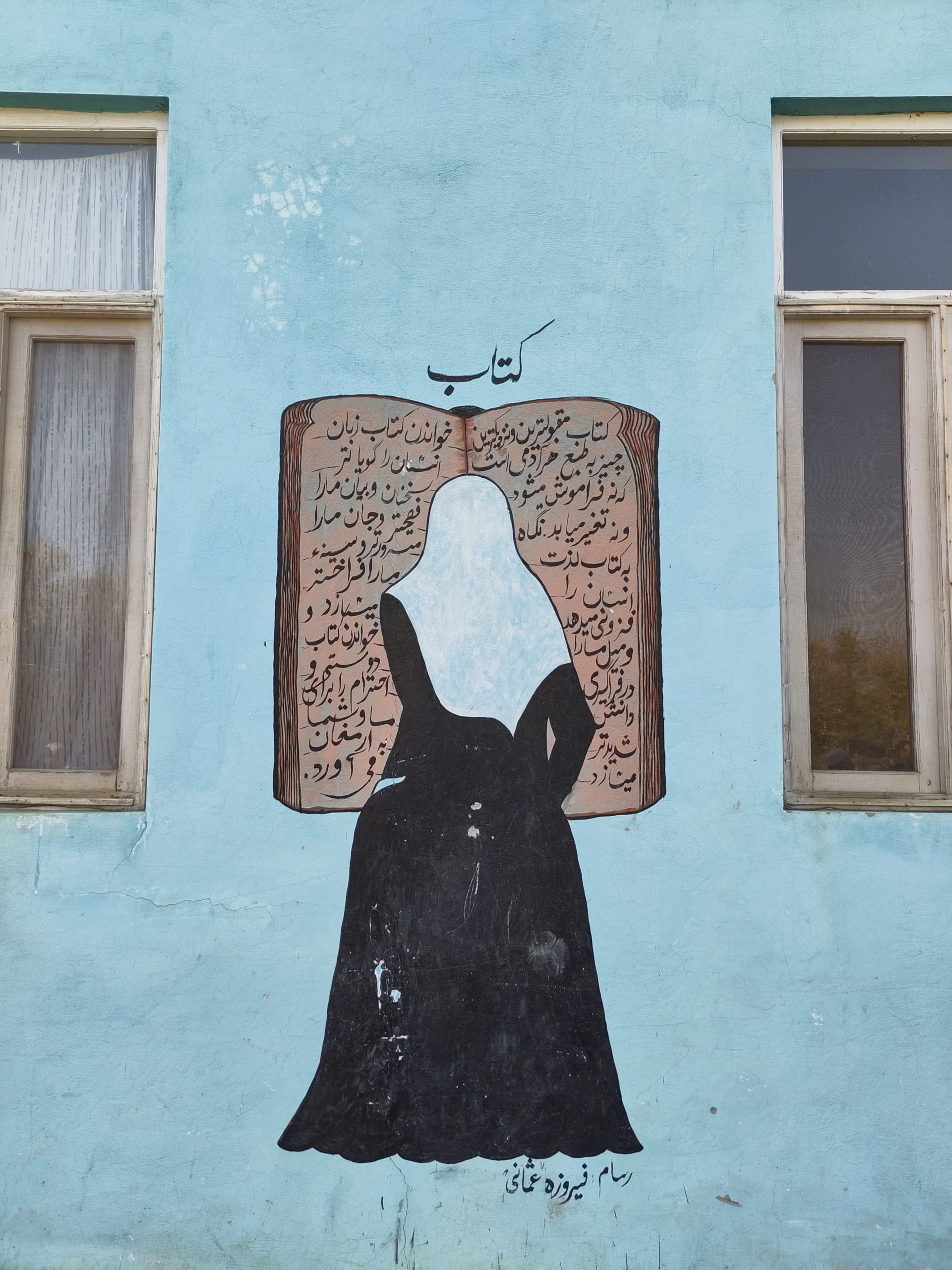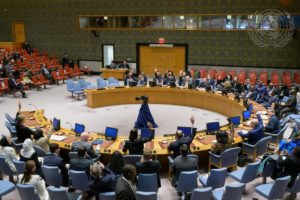AMINA MOHAMMED, UN Deputy Secretary-General briefing the UN following her visit to Afghanistan. © UN/Loey Filipe. 25 January 2023
4 February 2023
Dear UAI friends,
This issue shines lights into dark corners. With a few notable exceptions, media coverage of Myanmar, Ethiopia, and Afghanistan has been displaced by Ukraine, inflation, and climate change. Important as those issues are, states still have responsibilities to prevent war and its related atrocities, to provide adequate relief to civilian populations in need, including those in need of asylum, and to bring justice to the victims of these crimes.
______________________________________________________________________________________________________
Myanmar
On 1 February 2021, the military in Myanmar took power from the elected civilian leadership in a coup. Two years later, the country has fragmented, with the military resorting to increasingly brutal tactics to hold on to power.
On 23 January, UAI in the UK partnered with the Diplomacy Society of University College London to hold a hybrid webinar on “Anarchy, Displacement, and Destitution: What future for Myanmar?”
Joining the event online from Asia were Adelina Kamal, a former senior official with ASEAN, Burmese activist ‘Alexia’, and journalist Min Ye Kyaw. In the hall at UCL were Sir Charles Petrie, former UN Resident Coordinator in Myanmar, Dr Jeff Crisp, former head of policy at UNHCR, and Florence Duchet, UCL graduate and author of a blog on the current situation.
See below for links to their recent articles on the UAI website.
‘Myanmar is Falling Apart. It Needs Urgent Attention from the United Nations’ – By Charles Petrie
Over the course of 2 hours, the debate, moderated by Dr Garson of UCL, described the current situation, acclaimed the activism of young people in resisting the military take-over, and recognised the appalling suffering inflicted on the Rohingya people, both within Myanmar and in camps in Bangladesh and other parts of Asia.
Only from Aceh in Indonesia were there heart-warming stories of Rohingya refugees being rescued and welcomed by local fishermen and their communities.
All the speakers called for far greater international attention to the situation, including efforts to isolate and sanction the junta, increase aid to communities without collaborating with the junta, support a stronger peace-making role for ASEAN, and take initiatives to investigate and prosecute crimes against humanity.
On the anniversary, Adelina Kamal and colleagues published a powerful article, in The New Humanitarian, on the need for creative aid to local communities. (Click below to access their article.)
___________________________________________________________________________________________________
UAI has now established a standing Task Team on Myanmar, so coverage of this situation will be a regular feature of our messages.
___________________________________________________________________________________________________
Ethiopia
Finally, after two years of terrible war, the people of Tigray seem to be emerging from the disaster. Some reports suggest that 600,000 people (or about ten percent of the population) may have been killed in Tigray since the beginning of the conflict. Whatever the true figure, the levels of suffering are horrific.
The eyes of the world have been blinded by a shutdown of the internet and refusal of access to journalists.
Fred Harter, a reporter for The New Humanitarian, has just published a useful overview of the situation (see below for a link). As the cease fire agreement continues (hopefully to hold) urgent work will be required to meet immediate humanitarian needs, to support peace building efforts in Tigray (and its neighbouring regions in Ethiopia) and hold perpetrators of atrocities to account.
‘Tigray Aid Access Improves as Peace Deal Makes Headway’ by Fred Harter
Whilst the ending of the conflict in the north is a relief, the other conflicts affecting different parts of Ethiopia are of equally serious concern.
International media attention has focused on the north, so the spread of violence in Oromia, in particular, has been given little attention.
Forced displacements, revenge attacks on villages, kidnappings and destruction of homes and infrastructure are causing immense suffering to communities adding to the humanitarian caseload of a country still experiencing the effects of a five year region wide drought and spiraling rates of inflation.
__________________________________________________________________________________________________
Afghanistan
As if 40 years of war and the imposition by the Taliban authorities of inhuman bans on education and employment for girls and women were not enough, Afghanistan has been suffering, during recent weeks, from winter weather of unprecedented severity.
Temperatures below – 30 degrees Celsius have been recorded. More than 150 people have been reported as having died from the cold, although it must be assumed that this is an underestimate.
High level visits to the country by the Deputy Secretary-General of the United Nations and the Emergency Relief Coordinator did not manage to persuade the Taliban administration to reverse the bans on the education and work of women and girls, but practical negotiations both at national and local levels have allowed women to resume work in medical centres and some schools.
UAI continues to press for a rapid start to the work of the Afghan Fund in Switzerland (established last September). Urgent decisions are needed to enable the Central Bank to deliver on its responsibilities of facilitating the normal banking transactions that are essential for economic recovery and a functioning economy.
Finally, two pieces of good news:
After a long wait, newly printed Afghanis, the local currency, organised by the Central Bank, went into circulation much to the relief of Afghans who had struggled for almost two years with bank notes that were crumbling and not always accepted as legal tender.
And, Transparency International have reported that Afghanistan has climbed 24 places in 2022 in its rankings assessing levels of corruption. Click on the link below to access the article.
Afghnistan pulls away from the lower ranks of the Global Corruption Index











